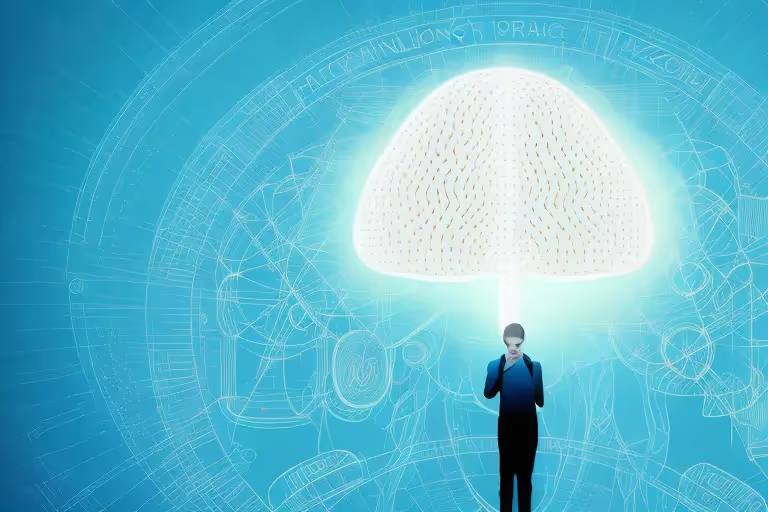Emotional triggers can seem overwhelming, but we can take control of our reactions and behaviors with mindfulness.
Have you ever felt a wave of unexpected emotions?
Emotional triggers are events or situations that provoke intense emotional reactions that are often automatic and associated with memory. Common examples of triggers include losing your sense of calm due to being outside your comfort zone, facing criticism, dealing with rejection, feeling pain, or facing failure.
Emotional triggers can also arise when something reminds you of a scene in your past. Post traumatic stress disorder (PTSD) is a disorder that occurs after a traumatic event begins to trigger the brain and body to go into fight, flight, or freeze after certain stimuli.
Whether you are someone who is reminded of a particular event in the past that haunts you or who finds yourself reacting to certain situations in confusing or disturbing ways, there is good news. Mindfulness, therapy techniques, self-awareness, and resilience strategies can all support you in reframing PTSD symptoms and the way the brain responds to potential triggers.
Identifying Personal Triggers
To better understand your unique, personal triggers, take a moment to reflect on past experiences that elicited strong emotions. Sometimes our responses are not logical.
We might get upset when someone doesn't respond to an email or call us back because we feel ignored or shunned. Meanwhile, the other person might be busy or need more time to respond, so the reaction is not founded in reality. In other words, triggers do not always represent facts, so it's important to identify your triggers and reactions that seem exaggerated.
Keeping a mindful journal to track your emotional responses will help you to better understand your emotional patterns. As you journal, you will begin to see waves of emotion clearly and how you react to situations and how your symptoms manifest emotionally. This does not look the same for everyone. PTSD responses can show up as anger, sadness, impulsive decision-making, or fear and a desire to leave a situation.
Recognizing Thought Patterns
Negative Thought Patterns
According to researchers, triggers can show up in different ways. There are enviornmental triggers, stressful life events, and traumas that can cause us to begin a negative thought pattern. Such thought patterns often show up as fortune-telling, catastrophizing, and overgeneralization. We'll explore how to meet each possible thought pattern below.
- Fortune-telling is often associated with an anxious mindset in which we are trying to predict what will happen next. Part of the fight or flight response, fortune-telling is often an automatic thought that arrives from a place of self-protection. However, our predictions for the future are often wrong. Remember that jumping to conclusions, especially in worst-case scenarios, is vital for reframing this triggering thought.
- Catastrophizing means expecting the worst-case scenario without evidence. Similar to fortune-telling, this is a negative thought based on an assumption that things will go wrong. While we might not have specifics in mind, when we catastrophize, we are automatically imagining the worst.
- Overgeneralization means viewing a single event as a consistent pattern. This sort of reaction can be met with mindful inquiry. If we ask ourselves what our evidence is for believing that an event is likely to recur, we can take a more pragmatic stance and plan accordingly.
Mindfulness for Awareness
Our brain is always responding to events and stimuli. It can seem hard to keep up. Mindfulness is a way of slowing down our reactive brain and instead charting the course of our emotions by practicing compassion and presence.
When you feel a triggering reaction, mindfulness reminds you to practice staying present to identify emotions as they arise. Learning to explore your thoughts with compassion and curiosity is the hallmark of this practice. One way to ease into mindfulness when triggers or symptoms surface is to use a breathing technique to focus on the present.
Breathing practices work well because they steady the body. Emotions often have physiological impacts, and if we begin to calm the body, the emotions themselves usually ease as well. Taking five mindful breaths, slowly focusing on the inhale as you breathe in and the exhale as you breathe out seems so simple, but it can lead to an emotional transformation in the moment.
Strategies for Managing Emotional Triggers
Cognitive Restructuring
The good news is that challenging and reframing negative thoughts in response to emotional triggers is possible. Cognitive behavioral techniques have been proven effective, especially when combined with mindfulness.
The first is to label the reaction. If you find yourself in a negative spiral, take a moment to estimate what it is showing up as. Are you fortune-telling or catastrophizing or generalizing? If so, take a step back and compassionately explore the thought. This will help you to focus on rational and objective perspectives, which will steady the emotional response.
“Neuroscience research shows that the only way we can change the way we feel is by becoming aware of our inner experience and learning to befriend what is going inside ourselves.”
― Bessel A. van der Kolk
Emotional Regulation Techniques
Relaxation methods like deep breathing, body scans, mindfulness, and meditation are excellent to practice regularly to better arm yourself against negative thoughts and emotions. You can also regulate emotions with exercises like weight-lifting, aerobics, or yoga. Engaging in physical activity can help you to release and ease stored emotions.
Building Resilience
Developing Healthy Coping Mechanisms
When thinking about how to change our behaviors, we have to take measures to set ourselves up for success. Often, our triggers are caused by a traumatic event that requires time to identify or fully face. Working in therapy and establishing a network of friends or family members who can support you is an excellent way to ensure your success.
If you do not feel you have these networks, the best way to begin is to explore finding professional support first to find other communities or groups where you may be able to build networks. There are PTSD support groups and resources available at the ADAA and mindfulness practices that can support you at Aura.
If you feel awash with negative emotions, it is also important to engage in hobbies that are self-nourishing and can support you when enduring intense feelings. This includes wellness activities and also anything that brings you joy.
Self-support might mean calling a friend, forest bathing, going to the museum or spa, or treating yourself to a nice dinner. It could also mean watching a good movie, exploring a local event, or attending a concert. What nourishes us is unique, but by gifting ourselves with time to indulge in the positive, we are better able to cope when emotions such as fear or anger arise.
Practicing Self-Compassion
As you begin to work through your triggers and subsequent post traumatic stress symptoms, you may noticed that some days are tough. If you have trauma triggers that you have not addressed, you might be surprised how much they have influenced your emotions and behaviors. But as you face your triggers honestly, leveraging support internally and externally, you will find great freedom.
As you take this journey, acknowledge and accept your emotional responses without judgment or condemnation. Remember that you are on a path toward healing these triggers and changing your behavior, and not every change will happen overnight.
Emotions can be leveraged to our benefit, leading us to achieve what we want in life and connect deeply with loved ones. Be gentle with yourself and put your mental health first as you begin to explore your triggers.
It might be helpful to pay attention to trigger warnings in movies or books and notice when you are upset so you can practice genuine self care. When you find yourself reacting, don't feel like you have to feel calm immediately. Instead, remind yourself that you are someone responding based on what has happened in the past, and you are laying the groundwork now for an even more compassionate response in the future.
Reminding yourself of your strengths and past successes is an excellent way to build resilience and acknowledge how strong you are. Trauma is best supported by a combination of therapy, self-awareness, and emotional regulation practices that all take time to incorporate. What's beautiful is that as we begin to face our traumas they end up becoming a source of strength as we become more resilient and better equipped to handle emotions in our life as we move forward.
Emotional triggers are not emotional sentences, and your reaction today does not have to be your reaction tomorrow. Emotional regulation meditations, such as tracks that target worry, anxiety, fear, or overthinking will support you.
Take a moment right now to remember just how strong you are. Yes, some situations may trigger anger or fear, but you are living despite them. Identify your strengths and play to them as you move forward. You will get better at sitting with uncomfortable emotions.
We all have personal emotional responses. Remember to be patient with yourself. Find a community to support you, and experiment with mindfulness tools in a way that makes sense for your lifestyle. The emotions will continue to ebb and flow, but you'll learn the joy of navigating the waves.



.webp)







.avif)

%20(1).avif)


.avif)
.avif)
.webp)


.avif)


















































































































.avif)

















.svg)









